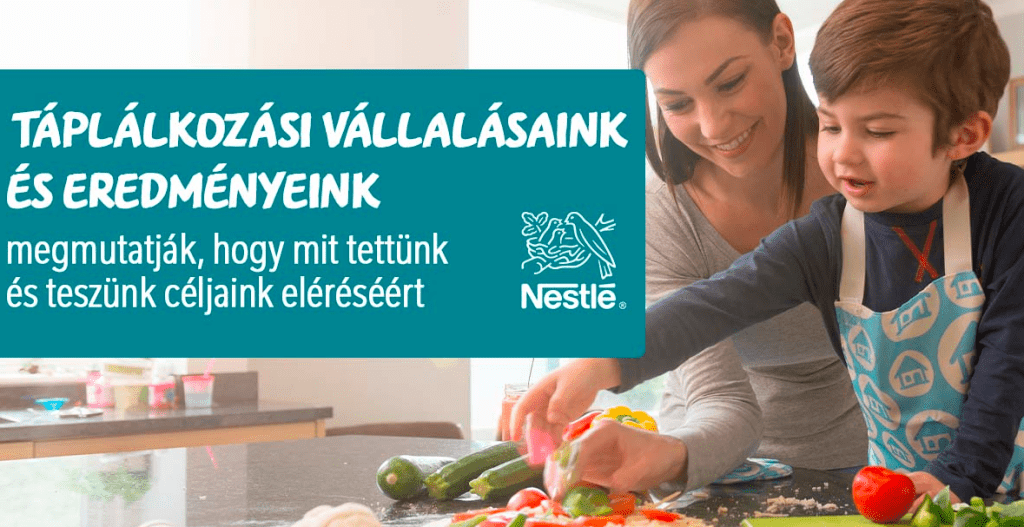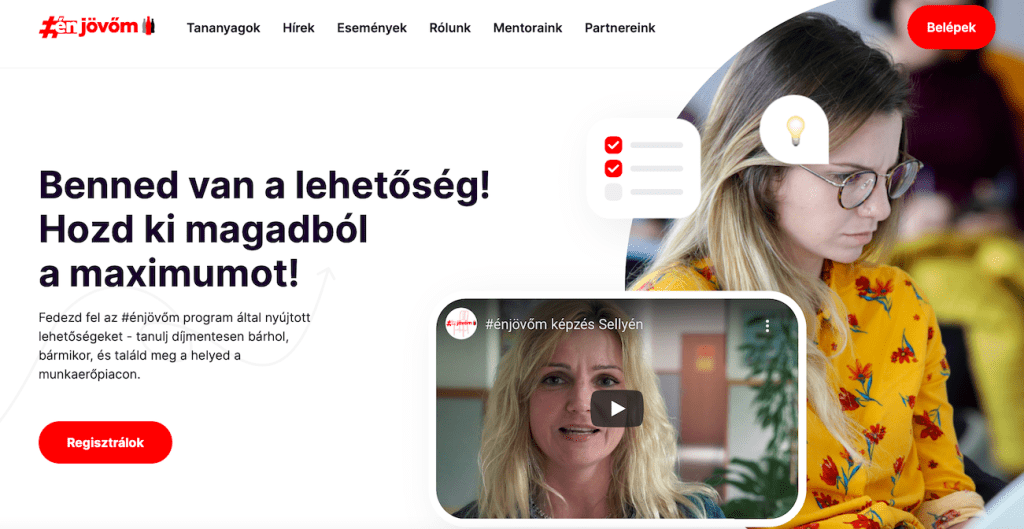Implementing the strategies for achieving a circular economy would reduce global greenhouse gas emissions by 39%. How to achieve climate goals through the circular transition? – this burning issue was at the heart of the fourth Circular Economic Summit, which was held with the participation of almost 170 people on 25 November 2021.
The world as a whole is a long way from operating as a circular economy. The circular economy involves a number of tools and complex systems and is one of the most effective things we can do to tackle climate change and rebuild biodiversity. The biggest circular event of the year (held with the help of ING Bank) provided a number of corporate and start-up examples of the circular economy and an overview of international processes.
Today, the Circular Economy Platform, which was established at the initiative of the Hungarian Business Council for Sustainable Development (BCSDH), the Dutch Embassy, and the Hungarian Ministry of Innovation and Technology, consists of 94 members. These institutions have highlighted knowledge-sharing, collaboration, and immediate action as the platform’s most important tasks.

Tibor Bodor, CEO Hungary & Head of Wholesale Banking CEE said the following: “we see more and more market-makers emerging in the area of the circular economy. This provides us with a positive view, with the expectation of increasing the speed of sustainable transitions.”
The world is facing three critical challenges: a climate emergency, loss of natural diversity, and growing social inequality. Climate change is not a phenomenon of the future: we are already increasingly experiencing its effects in the form of heat waves and droughts, torrential rain, and even severe windstorms. Most of the effects of the climate change will take place through water-related changes.
A substantial acceleration of ambition and action is needed to meet the Paris Agreement targets. One of the main successes of the now-concluded COP26 is that more ambitious, net zero-emission national commitments have been made. While three weeks before the event global emissions targets covered only two-thirds of those required to reach net zero, after COP26 they had increased to 90%. Hungary wants to be a net climate-neutral country by 2050 and has also committed to a 55 percent national reduction in emissions by 2030.

“Companies also need to act now. A company that does not change in time is taking a serious risk. No longer can ‘low-carbon’ be the sole objective: climate neutrality must be achieved urgently through new technological solutions and the spread of the circular economy and rapid changes in consumption patterns at all levels – highlighted Attila Chikán Jr, President of BCSDH. “As in so many other areas, companies are leading the way, and a growing number of them are already integrating circular economy principles into their strategies. For the time being, these solutions are mostly seen as new business opportunities alongside preexisting ‘material-intensive’ processes. But the aim should increasingly be to replace the latter, as this can only slow down the use of natural resources” – he added.
Of all the natural resources water deserves special attention, as the basis for effective climate adaptation. In addition to an increase in the average temperature, Hungary is expected to be hit hardest by a growing water shortage. Implementing circular water management is urgent and necessary.
This should contribute to keeping water resources in the system for as long as possible, thereby helping to reduce the water footprint.
At present, Hungary is not managing its natural resources wisely, and it is still some way from achieving a circular economy, but it is encouraging that the Hungarian legislative process has started to address the circular economy. These are important steps that will help ensure that Hungary’s further development does not happen at the expense of its natural resources.
The guest speaker at the Circular Economy Summit was Vojtech Vosecky, a leading expert in the field of the circular economy and associate at the one of the world’s leading transition organizations, Circle Economy. He gave a presentation about the links between climate protection goals and the circular economic transition.
Measuring circularity on a company level – and the CTI system and its practical application, as developed by the WBCSD jointly with KPMG – was the topic of the roundtable discussion led by Irene Martinetti, WBCSD Circular Economy Manager.

In addition to learning about a number of international and domestic examples of circular water management, including corporate and start-up solutions, the Circular Regions Project was introduced to provide an overview of the potential of regional cooperation on the topic of the circular economy.

“The Circular Economy is becoming a significant pillar of the Netherland’s diplomatic activities and this region is playing an important role in that. It is good to see that the regional approach is also represented here today, where our practices inspire other countries and we get inspired by the examples of others, showing how the circular transition can respond to the complex ecological issues of our time” – added Désirée Bonis, Ambassador of the Kingdom of the Netherlands to Hungary.
 Transitioning to a circular economy is a great business opportunity today. The core of the concept is not yet deeply understood by most companies, although the use of this model can increase the resilience of the world economy and facilitate the achievement of the Paris Climate Change Agreement and the United Nations Sustainable Development Goals. The circular economy could generate business opportunities worth $4.5 billion worldwide by 2030.
Transitioning to a circular economy is a great business opportunity today. The core of the concept is not yet deeply understood by most companies, although the use of this model can increase the resilience of the world economy and facilitate the achievement of the Paris Climate Change Agreement and the United Nations Sustainable Development Goals. The circular economy could generate business opportunities worth $4.5 billion worldwide by 2030.
Thus, within the Circular Economy Platform’s highly successful Circular Economy Academy, participants benefit from insight from renowned experts about circular performance measurement systems, food waste, and circular design. Furthermore, they have been able to learn about the latest circular business models through innovative international and domestic examples. The work continues, while the focus remains on knowledge-sharing, collaboration, and action.
*****
The Circular Economy
According to the current so-called linear economic model, technical and biological components are extracted from nature, transformed, and are then disposed of without recycling.
In contrast, in the circular economic model, metabolic processes occur in a closed circle, waste is almost 100% recycled, and biological and technological components are returned to the cycle with minimum loss of quality.
Thanks for our Sponsors in 2021:












 Transitioning to a circular economy is a great business opportunity today. The core of the concept is not yet deeply understood by most companies, although the use of this model can increase the resilience of the world economy and facilitate the achievement of the Paris Climate Change Agreement and the United Nations Sustainable Development Goals. The circular economy could generate business opportunities worth $4.5 billion worldwide by 2030.
Transitioning to a circular economy is a great business opportunity today. The core of the concept is not yet deeply understood by most companies, although the use of this model can increase the resilience of the world economy and facilitate the achievement of the Paris Climate Change Agreement and the United Nations Sustainable Development Goals. The circular economy could generate business opportunities worth $4.5 billion worldwide by 2030.
